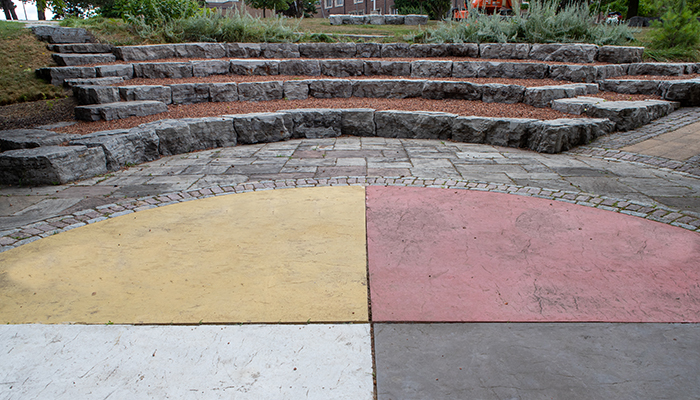A message from the Dean and Vice-President on National Indigenous Peoples Day

Today, on National Indigenous Peoples Day, members of McMaster University’s Faculty of Health Sciences join other Canadians in reflecting upon, learning and celebrating the history, sacrifices, cultures, contributions, and strengths of First Nations, Inuit and Metis people. This year marks a significant milestone as it is the 25th anniversary of National Indigenous Peoples Day.
Today, on National Indigenous Peoples Day, members of McMaster University’s Faculty of Health Sciences join other Canadians in reflecting upon, learning and celebrating the history, sacrifices, cultures, contributions, and strengths of First Nations, Inuit and Metis people. This year marks a significant milestone as it is the 25th anniversary of National Indigenous Peoples Day.
“As we celebrate and honour the achievements of members of the Indigenous community, we also pause to reflect on the painful news of the discovery of the remains of 215 Indigenous children near the former Kamloops Indian Residential School and at other former residential school sites across Canada,” said Paul O’Byrne, dean and vice-president of the Faculty of Health Sciences at McMaster University.
“As we pay our respects for this unfathomable loss experienced by all Indigenous peoples, we listen with respect, humility and compassion to the First Nations, Metis and Inuit peoples who have for decades described the appalling conditions and severity of the residential school system.”
McMaster’s Faculty of Health Sciences is dedicated to strengthening its resolve towards reconciliation, working with Indigenous community partners, Faculty leadership, and Indigenous alumni and students through an Indigenous Health Education Strategic Plan, said O’Byrne.
“This plan guides the Faculty forward as it advocates for the health system reform that is needed to address health inequities. Our commitment is to move forward in partnership with Indigenous peoples toward reconciliation, support Indigenous students in access to safe and high-quality education and advance initiatives that will make a meaningful difference in the lives of Indigenous peoples and their communities.”
Community, McPerg
